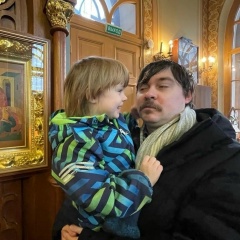Ибо, хотя бы народа у тебя, Израиль, было столько, сколько песку морского, только остаток его обратится; истребление определено изобилующею правдою; ибо определенное истребление совершит Господь, Господь Саваоф, во всей земле. И вот, пророк обращается к пророчеству. Так как иудеи всегда надеялись на численность, говоря, что Бог не погубит такого множества людей, то он исторгает эту надежду: Я, говорит, не придам значения многочисленности. И другой пророк также говорит: и будет число сынов Исраилевых, яко песок морский (Ос.1:10). Что пользы в толпе, если бесполезны сами дела? Не все имели быть неверующими, но так как веровали немногие, то и спасение получили немногие. Истребление определено изобилующею правдою: не будет более продолжаться долготерпение, снисхождение и милость. Но, как мне кажется, выражение: определенное истребление совершит Господь, Господь Саваоф, во всей земле, указывает на решения в будущей жизни. Смотри, как с чудесами смешиваются пророчества, бывшие и неисполнившиеся. Так как сказано, что спасутся немногие оставшиеся, то ты не говори, каким образом из такого множества спасаются немногие. Так или иначе, говорит, Я не буду щадить вас, но погублю всех, даже оставшихся. Видишь ли, как Он заботится, чтобы они надеялись на Бога, а не на множество, как и в другом месте говорит: Мне ли не пожалеть... города великого, в котором более ста двадцати тысяч человек (Иона 4:11). Говоря это, Бог как бы утешал пророка, но, и безотносительно к тому, Он пощадил город, ради примерного покаяния: ведь если бы Он принимал во внимание многочисленность, то должен был бы пощадить и прежде покаяния. Но если прежде покаяния Он не принимал во внимание многочисленности, то, конечно, не принимал ее во внимание и после покаяния, почему и говорится: И увидел Бог дела их, что они обратились от злого пути своего (Иона 3:10), и в другом месте: чем больше они умножаются, тем больше грешат против Меня (Ос.4:7). Видишь ли, что множество не умилостивляет, а скорее раздражает Бога, так как чем больше людей, тем больше зла? Один нечестивый часто может спастись, но многие — никогда и нигде, так как все страдают той же болезнью. И ныне, в наши времена, скажут, ужели Бог погубил бы такое множество? Конечно, так как Он презирает множество. Не видишь ли ты, что только один с домом своим избежал невредимым потопа, трое только спаслись от огненного гнева, посетившего содомлян, и двое только — в пустыне? Лучше, говорит, один творящий волю Божию, чем 10000 беззаконников, — и справедливо: что бы ты лучше желал найти — 10000 деревянных или оловянных монет, или — одну драгоценную жемчужину? Не говори, что она одна только, но знай, что она одна драгоценнее тех многих, так как не во множестве цена, но в цене — множество. Потому о немногих добрых людях говорится: те, которых весь мир не был достоин (Евр.11:38).
Свт. Иоанн Златоуст
Свт. Иоанн Златоуст
For, even if you have a people, Israel, there were as many as the sand of the sea, only the rest of it will be converted; extermination is determined by abundant truth; for the Lord, the Lord of hosts, will make a certain destruction in all the earth. And so, the prophet turns to prophecy. Since the Jews have always hoped for numbers, saying that God will not destroy so many people, he expels this hope: I, says, do not attach importance to the numbers. And another prophet also says: and there will be the number of the sons of Israel, like the sand of the sea (Hos. 1: 10). What good is the crowd if the work itself is useless? Not everyone had unbelievers, but since few believed, few received salvation. Extermination is defined by an abundant truth: patience, condescension, and mercy will no longer continue. But, as it seems to me, the expression: the Lord will make a certain extermination, the Lord of hosts, in the whole earth, points to decisions in the future life. Watch how the prophecies, former and unfulfilled, are mixed with miracles. Since it is said that the few remaining are saved, you do not say how few are saved from such a multitude. One way or another, he says, I will not spare you, but I will destroy everyone, even those who remain. You see how He cares so that they hope in God, and not on the multitude, as he says elsewhere: Do I not regret ... the great city, in which more than one hundred and twenty thousand people (Jonah 4:11). Saying this, God seemed to console the prophet, but, regardless of that, He spared the city for the sake of approximate repentance: for if He took into account the multiplicity, he would have to spare before repentance. But if before repentance He did not take into account the multiplicity, then, of course, did not take it into account after repentance, which is why it is said: And God saw their work, that they had turned from their evil way (Jonah 3:10), and in another place: the more they multiply, the more they sin against Me (Hos. 4: 7). You see that many do not propitiate, but rather annoy God, because the more people there are, the more evil? One wicked can often be saved, but many never and nowhere, since everyone suffers the same disease. And now, in our time, they’ll say if God would have destroyed so many? Of course, since He despises the multitude. Do you not see that only one with his house escaped the flood unscathed, three only escaped from the fiery anger that visited the Sodomites, and only two - in the desert? Better, he says, one who does the will of God than 10,000 wicked, - and rightly: what would you rather want to find - 10,000 wooden or tin coins, or - one precious pearl? Do not say that she alone is, but know that she alone is more precious than those many, since not in a multitude of price, but in price - multitude. Therefore, few good people are said to be: those whom the whole world was not worthy (Heb. 11:38).
St. John Chrysostom
St. John Chrysostom
У записи 2 лайков,
1 репостов.
1 репостов.
Эту запись оставил(а) на своей стене Виктор Петров



















![Стас Однолетков -=[strast]=- Стас Однолетков -=[strast]=-](https://sun9-50.vkuserphoto.ru/s/v1/ig2/BQKIUfD3kthNCNNY9BS69xiPt_GjwVRhAU8D64L6gfeFjcmrTqYrLAC9NKgCppVxwhm79Mi5RypIHhjSHOhQK2uy.jpg?quality=95&crop=347,544,400,400&as=32x32,48x48,72x72,108x108,160x160,240x240,360x360&ava=1&cs=200x200)


